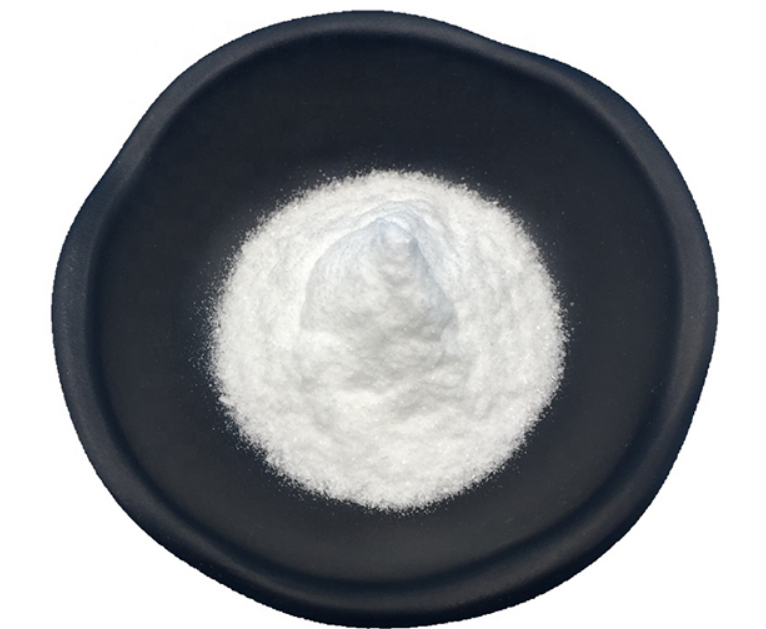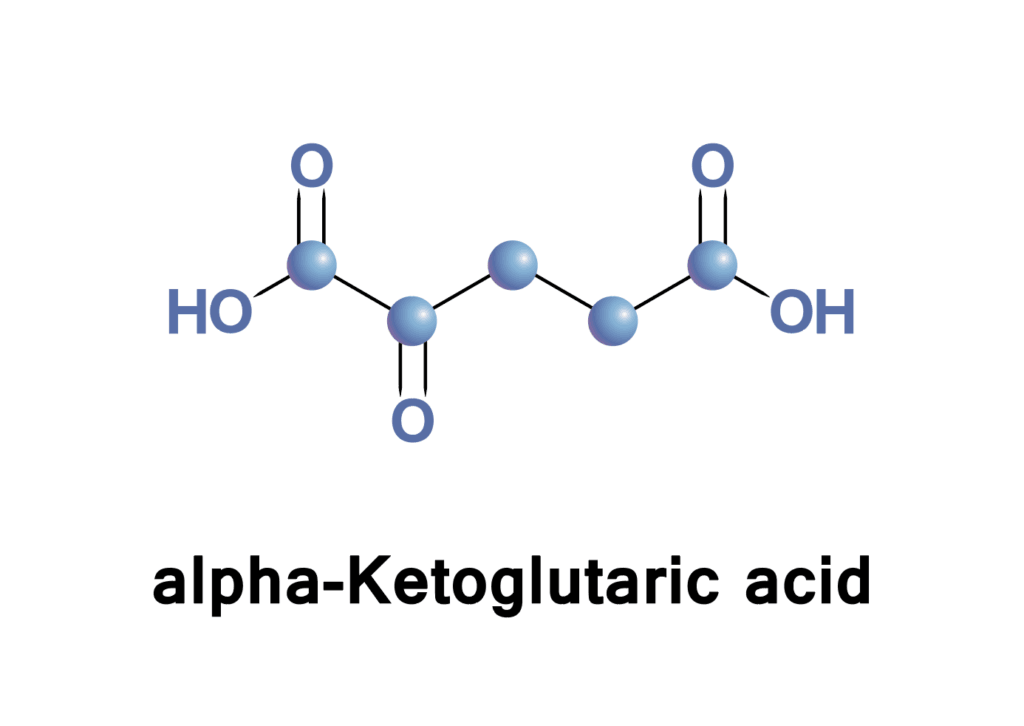Does AKG lower cholesterol?
Alpha-Ketoglutarate, commonly abbreviated as AKG, has been gaining attention in the fields of nutrition, anti-aging, and performance health. Known primarily for its role in the Krebs cycle (the body’s energy production process), AKG is also associated with several potential health benefits, ranging from cellular longevity and muscle support to bone health and metabolic balance.
One question that’s increasingly being asked is: Does AKG lower cholesterol? While AKG isn’t traditionally categorized as a lipid-lowering supplement like statins or omega-3s, emerging research suggests it may play a supportive role in cholesterol management and overall cardiovascular health.
This blog takes an in-depth look at AKG’s metabolic functions, how it might influence cholesterol levels, and what current studies say about its potential cardiovascular benefits.
What Is AKG (Alpha-Ketoglutarate)?
Alpha-Ketoglutarate (AKG) powder is a naturally occurring molecule involved in several essential physiological processes. It is a key intermediate in the citric acid cycle (also called the Krebs cycle), where it helps convert nutrients into cellular energy (ATP). But AKG does more than just fuel your cells — it also plays roles in:
- Amino acid metabolism
- Nitrogen balance
- Collagen synthesis
- Bone and muscle maintenance
- Epigenetic regulation (gene expression related to aging)
Due to its central role in metabolic function, AKG powder is being explored in both clinical and wellness settings for its anti-aging, muscle-preserving, and metabolic-enhancing effects.

Understanding Cholesterol and Its Impact on Health
Cholesterol is a waxy, fat-like substance present in every cell of the body. It’s essential for hormone production, vitamin D synthesis, and cell membrane structure.
It travels in the blood via lipoproteins:
- LDL (low-density lipoprotein) – often called “bad” cholesterol; high levels can lead to plaque buildup in arteries.
- HDL (high-density lipoprotein) – known as “good” cholesterol; helps remove excess cholesterol from the bloodstream.
- High levels of LDL cholesterol and low levels of HDL cholesterol are linked to a greater risk of atherosclerosis, heart attack, and stroke.

AKG and Cholesterol: Is There a Link?
While AKG is not a direct cholesterol-lowering agent in the way statins are, its indirect metabolic effects may contribute to healthier lipid profiles and cardiovascular function. Here's how:
1. Modulating Lipid Metabolism
AKG influences amino acid metabolism, particularly glutamate and glutamine, which play roles in nitrogen and lipid metabolism. This interaction may affect how fats, including cholesterol, are processed and utilized in the body.
In some experimental models, AKG has been shown to:
- Enhance fatty acid oxidation
- Reduce lipid accumulation in the liver
- Improve overall lipid metabolism
These functions suggest that AKG could contribute to reducing LDL cholesterol levels and promoting better fat balance in the body over time.
2. Anti-Inflammatory Properties
Chronic low-grade inflammation is a known contributor to elevated cholesterol and cardiovascular disease. AKG has demonstrated anti-inflammatory effects by reducing pro-inflammatory cytokines such as IL-6 and TNF-α in preclinical studies.
By lowering inflammation, AKG may help reduce the oxidation of LDL cholesterol, a harmful process that leads to the formation of plaque in arteries.
3. Improving Mitochondrial Function and Energy Balance
Healthy mitochondria are essential for metabolic efficiency. Since AKG supports mitochondrial energy production, it may indirectly influence the body’s ability to process and eliminate excess fats, including cholesterol.
- Improved mitochondrial function:
- Enhances fat metabolism
- Reduces lipid storage
- Promotes overall metabolic health
4. AKG’s Role in Longevity and Metabolic Health
In animal studies, supplementation with AKG has been linked to extended lifespan and improved metabolic markers, including better glucose control and insulin sensitivity. These effects may contribute to a healthier lipid profile, especially in aging individuals whose metabolism tends to slow down.
One notable study published in Cell Metabolism found that AKG extended the lifespan of mice by up to 16%, and significantly reduced age-related inflammation and metabolic decline. Though cholesterol wasn’t the focus of this study, improved metabolic efficiency often correlates with healthier blood lipid levels.

Can AKG Be Used with Other Cholesterol-Lowering Interventions?
Yes. AKG is generally considered safe and well-tolerated. It can be used alongside other lifestyle interventions and natural ingredients known to support healthy cholesterol levels, such as:
- Dietary fiber
- Plant sterols
- Omega-3 fatty acids
- Exercise
- Green tea extract
- PQQ and NMN (also mitochondrial support antioxidants)
Combining AKG with other interventions may offer synergistic benefits, especially for individuals focused on overall metabolic and cardiovascular health.

Recommended Dosage
While there is no official dosage for cholesterol reduction, typical AKG supplementation ranges from 300 mg to 1,000 mg per day. It's often taken on an empty stomach or with meals, depending on the formulation.
As always, individuals should consult a healthcare professional before beginning any new supplement, particularly if they are taking medications or have pre-existing conditions.

Conclusion
While it’s not a direct substitute for traditional cholesterol-lowering drugs, AKG shows promising potential in supporting lipid metabolism and cardiovascular health through its metabolic, anti-inflammatory, and mitochondrial-enhancing properties. Animal studies are encouraging, and emerging human research is beginning to highlight its broader applications in metabolic wellness and longevity.
For individuals seeking natural ways to support heart health, metabolic efficiency, and healthy aging, AKG may be a valuable addition to a well-rounded lifestyle and nutrition plan.
For Alpha-Ketoglutarate Powder (AKG) there are different specification for your choice, we can provide 10-30g of free samples, US warehouse in stock of 500kg of each month for the market of the global. certificate of analysis (COA), MSDS, specification sheet, pricing quotation is obtainable upon your request.
If you have any question or need any documents, welcome to contact us by e-mail: info@yanggebiotech.com
Send Inquiry
Related Industry Knowledge
- MSM Powder Health Benefits and Effects
- Benefits of Lion’s Mane Extract Powder
- What is beta-carotene and how does it affect vision?
- Butterfly pea flower benefits for skincare
- What Is Liposomal Vitamin C & How It Works?
- How can you benefits from almond protein powder?
- What Are the Top Benefits of Meso-Zeaxanthin for Eye Health?
- Fish Collagen vs. Bovine Collagen: Understanding the Differences and Benefits
- What is Blue Spirulina?
- Exploring the Origins of Butterfly Pea Powder


